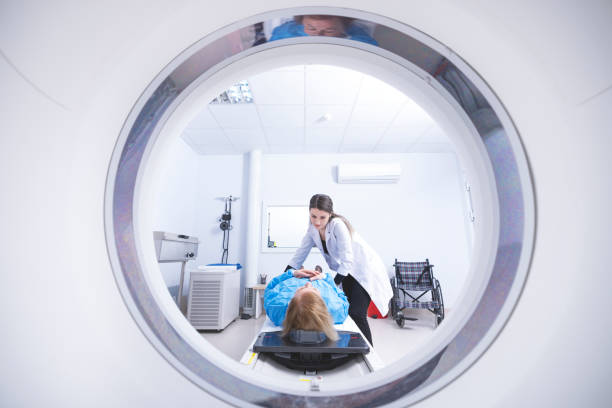Healthcare Informatics
In a time where innovation is progressing at an extraordinary speed, the medical services industry remains near the very edge of a groundbreaking upset. Fundamental to this unrest is the field of medical care informatics, which harnesses the force of data innovation to improve the conveyance of medical care administrations. Medical care informatics, frequently alluded to as wellbeing informatics or clinical informatics, envelops the obtaining, stockpiling, recovery, and utilization of medical care data to help clinical independent direction, work on persistent results, and smooth out medical care tasks.

The Job of Healthcare Informatics in Present-Day Medical Services
Healthcare informatics assumes a crucial role in present-day medical care by furnishing medical care experts with convenient access to exhaustive patient information, working with proof-based direction, and enhancing medical care conveyance processes. By utilizing electronic well-being records (EHRs), telemedicine, well-being data trade (HIE), and information investigation, healthcare informatics enables clinicians to convey customized and proficient consideration to patients across different medical service settings.
One of the vital advantages of healthcare informatics is its capacity to further develop care coordination and correspondence among multidisciplinary medical service groups. Through coordinated electronic well-being record frameworks, clinicians can safely share patient data, work together on treatment plans, and screen patient advancement progressively. This consistent trade of data improves the coherence of care and diminishes the probability of clinical mistakes, at last prompting a better understanding of results.
Besides, healthcare informatics assumes a pivotal role in populace well-being, the executives, and illness observation. By dissecting enormous volumes of medical service information, general well-being authorities can distinguish illness patterns, screen the spread of irresistible illnesses, and carry out designated interventions to forestall episodes. This proactive way to deal with populace wellbeing works on the soundness of people as well as fortifies the strength of medical service frameworks in general wellbeing crises.
The Effect of Healthcare Informatics on Tolerant Commitment and Strengthening
Notwithstanding its clinical applications, healthcare informatics additionally engages patients to effectively partake in their medical care venture. Patient entryways, portable wellbeing applications, and wearable gadgets empower people to get to their wellbeing data, keep tabs on their development, and speak with their medical services suppliers from a distance. This expanded network and commitment encourage a cooperative connection among patients and suppliers, prompting further developed adherence to treatment plans and better wellbeing results.

Also, medical care informatics works with the conveyance of customized medication by utilizing genomic information, prescient examination, and AI calculations. By examining hereditary markers and clinical factors, medical care suppliers can fit therapy techniques to individual patients, expanding remedial viability and limiting antagonistic impacts. This accuracy medication approach holds incredible commitment for the therapy of intricate and constant circumstances, offering new roads for designated intercessions and working on tolerant consideration.
Difficulties and Potential Open Doors in Medical Care Informatics
In spite of its likely advantages, medical care informatics additionally faces a few difficulties, including information protection concerns, interoperability issues, and labor force deficiencies. Guaranteeing the security and privacy of patient data remains a first concern, given the delicate nature of medical care information and the rising danger of cyberattacks. Besides, achieving consistent interoperability between various medical service frameworks and gadgets is fundamental for working with the information trade and advancing the coherence of care.
Besides, the fast speed of mechanical advancement in medical care informatics requires continuous schooling and preparation for medical care experts to adjust to new advancements and best practices. Putting resources into labor force improvement programs and interdisciplinary joint efforts can assist with overcoming any barrier between innovation and medical services conveyance, guaranteeing that medical care informatics keeps on driving positive change in the medical services scene.
Final Words
All in all, medical care informatics holds an enormous commitment to upsetting the conveyance of medical service benefits and working on quiet results. By tackling the force of data innovation, healthcare informatics empowers clinicians to pursue informed choices, connect with patients in their consideration, and improve the proficiency of medical service conveyance processes. Notwithstanding, understanding the maximum capacity of healthcare informatics requires addressing difficulties connected with information security, interoperability, and labor force availability.

FAQs
What are a few instances of healthcare informatics innovations?
Instances of medical care informatics innovations incorporate electronic wellbeing records (EHRs), telemedicine stages, wellbeing data trade (HIE) networks, clinical choice emotionally supportive networks, and information examination instruments. These advancements empower medical services associations to catch, store, and investigate enormous volumes of medical care information to work on quiet results, upgrade functional effectiveness, and support the wellbeing of the population.
How does medical care informatics influence medical care conveyance?
Healthcare informatics essentially affects medical service conveyance by smoothing out authoritative cycles, further developing consideration coordination, and upgrading clinical independence. By digitizing medical services records and carrying out interoperable frameworks, medical care associations can lessen their authoritative weight, limit clinical mistakes, and further develop correspondence among medical services suppliers. This results in more productive and successful medical care conveyance, eventually helping the two patients and suppliers.
What are a few difficulties in medical care informatics?
Regardless of its many advantages, healthcare informatics faces a few difficulties, including information protection concerns, interoperability issues, and labor force deficiencies. Guaranteeing the security and privacy of patient data remains a main concern, especially considering the rising danger of cyberattacks. Accomplishing consistent interoperability between various medical service frameworks and gadgets is additionally difficult, as it requires normalized information arrangements and conventions. Moreover, there is a developing requirement for gifted experts in medical care informatics, highlighting the significance of labor force improvement and schooling drives.
How could medical care associations at any point overcome difficulties in healthcare informatics?
Medical services associations can overcome difficulties in medical care informatics by carrying out strong information safety efforts, encouraging cooperation among partners, and putting resources into preparing and training medical services experts. By embracing best practices in information administration and network safety, associations can alleviate the dangers related to medical care information breaks and guarantee consistency with administrative prerequisites. Joint efforts among medical service suppliers, innovation merchants, and policymakers are fundamental for tending to interoperability challenges and advancing the consistent trade of medical care data. Besides, putting resources into preparing programs and proceeding with training amazing open doors can assist medical care experts with fostering the abilities and skills expected to use healthcare informatics advances in their training.

